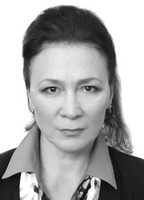Structural analysis of intellectual difficulties in junior athletes' competitive activity
Фотографии:
ˑ:
Teoriya i praktika fizicheskoy kultury №2 2017, pp.100-102
UDC 796.077.5
Associate Professor, PhD G.A. Kuzmenko
Moscow State Pedagogical University (MSPU), Moscow
The study was designed to explore the intellectual problems faced by adolescents in their sporting activity and spell out their intellectual demands with an emphasis on the educational needs and with account of the types and manifestations of intellectual qualities of special importance for successful self-fulfilment in the vocational sports. Subject to the study were 500 adolescent athletes aged 13-15 years and 104 coaches representing 18 sport disciplines. The study data and analyses highlighted the range of the adolescents’ educational needs beyond the frame of the cognitive functions, plus the professional interests of the coaches in terms of their professional skills improvement in the junior athletes’ intellectual training technologies. Most of the respondents do believe that the athletic training process must give a high priority to the biological determinants of intellect and individual cognitive styles to build up the cognitive versatility and cognitive functionality, plus the situation-beneficial domains of the theoretical, informational, technological, practical, body-control, motivational (intra-personal), emotional and social domains of intellect. Coaches, in contrast to the junior athletes, tend to underestimate the role of biological determinants of intellect including psychomotor, technological and emotional intellect, and this is interpreted as indicative of the adolescents’ educational needs being still unsatisfied.
Keywords: adolescent, coach, sporting activity, types of intellect, intellectual problems, educational demand.
References
- Vygotskiy L.S. Sobranie sochineniy: V 6 t. [Collected Works: In 6 vol.]. Moscow: Pedagogika publ., 1982-1984, 1983, vol. 5, p. 21.
- Druzhinin V.N. Psikhodiagnostika obshchikh sposobnostey [Psychodiagnostics of general abilities]. Moscow, 1996, 216 p.
- Isaeva E.G. Vnutrilichnostnye konflikty i ikh korrektsiya [Intrapersonal conflict and their correction]. Makhachkala: DNTs RAN publ., 2002, 371 p.
- Malysheva L.V. Modeli intellekta: 100 let razvitiya [Intelligence Models: 100 years of development]. Moscow: MPSI; Voronezh: MODEK publ., 2006, 280 p., pp. 111, 168-169.
- Fetiskin N.P., Kozlov V.V., Manuylov G.M. Sotsialno-psikhologicheskaya diagnostika razvitiya lichnosti i malykh grupp [Socio-psychological diagnosis of personality and small group development]. Moscow: Institute of Psychotherapy publ., 2002, 490 p., p. 69.
- Kholodnaya M.A. Psikhologiya intellekta. Paradoksy issledovaniya. 2 izd. [Psychology of intelligence. Paradoxes of research. 2nd ed.]. St. Petersburg: Piter publ., 2002, 272 p.
- Bandura A. Social Learning Theory. N.Y.: General Learning Press publ., 1977, p. 22.
- Berry J.W. Toward a universal psychology of cognitive competence. Inter. J. of Psychol., 1984, vol. 19, pp. 335-361.
- Cattell R.B. Theory of fluid and crystallized intelligence: A critical experiment. Journal of Educational Psychology, 1963, vol. 54 (1), pp. 1–22.
- Dazen P., Spearman΄s M-N. The influence of acculturation of the social representations of intelligence. 2 European Congress of Psychology. 8-12 July, Budapest, 1993, p. 32.
- Sternberg R. Implicit theories of intelligence, creativity and wisdom. Journal of Personality and Social Psychology, 1985, vol. 49, pp. 607-627.




